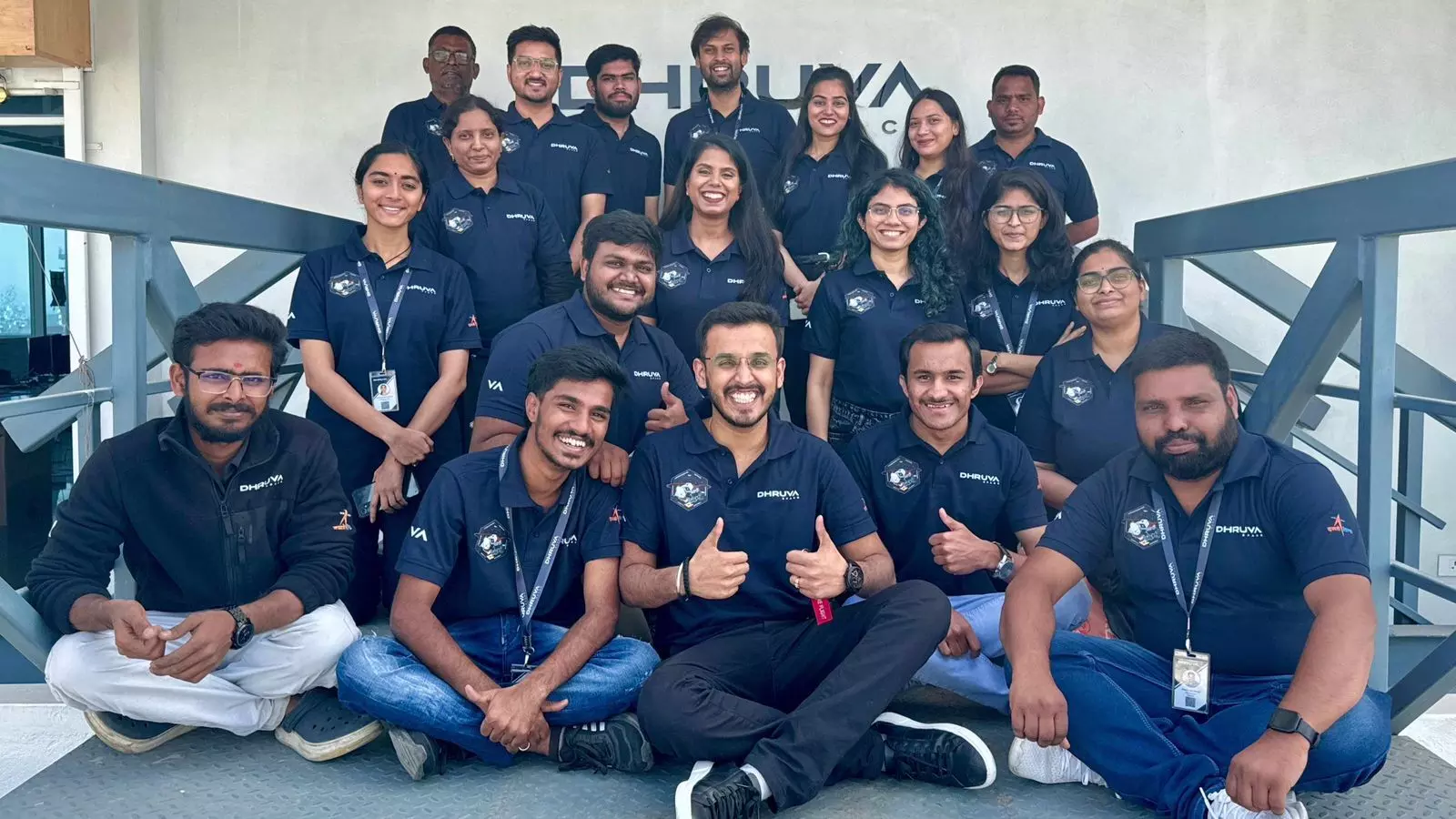Dhruva Space payloads on PSLV C-58 POEM 3; Co. to business as a hosted payload solutions provider
The LEAP-TD mission featured a derivative of the Dhruva Space P-30 satellite platform integrated to ISRO’s PSLV Orbital Experimental Module 3 (POEM-3)

HYDERABAD: City-based Dhruva Space has announced its success of its Space-qualification of P-30 satellite platform launched as ‘Launching Expeditions for Aspiring Payloads - Technology Demonstrator’ Payload onboard ISRO’s PSLV-C58 POEM-3 mission. The launch took place at 09:10 IST on January 1. 2024, from the First Launch Pad at Satish Dhawan Space Centre (SDSC) in Sriharikota, Andhra Pradesh.
The LEAP-TD mission featured a derivative of the Dhruva Space P-30 satellite platform integrated to ISRO’s PSLV Orbital Experimental Module 3 (POEM-3), which enabled in-orbit scientific experiments using the spent PS4 stage as an orbital platform. POEM has standard interfaces and packages for power generation, telemetry, tele-command, stabilisation, orbit keeping and orbit manoeuvring and hence can be used to design, develop and validate experimental payloads. IN-SPACe in collaboration with ISRO, had announced the opportunity to host payload on POEM missions.
This mission has validated the P-30 platform and its various subsystems in-orbit. These subsystems include On-Board Computer, Ultra High Frequency (UHF) TT&C Module , Beacon in UHF, Attitude Control System with a Reaction Wheel from Comat, and Power Distribution Board. The triumph of this mission was confirmed by the way of reception of Telemetry & Beacon data at the Ground Station of Indian Institute of Space Science & Technology (IIST), Trivandrum, and through the data received from the POEM platform itself as well.
A new era of launches
The qualification of the LEAP Technology Demonstrator has now paved the way for hosted payload solutions for Space missions, signifying Dhruva Space’s readiness to offer these services to the global market through its LEAP initiative. The company is pleased to share that the first LEAP satellite mission (LEAP-1) has already been conceived and is slated to be launched soon The qualification of this P30 Satellite Platform has also immensely boosted the confidence of Dhruva Space’s customers who are slated to utilise this platform in upcoming satellite missions.
A hosted payload service comprises a portion of a satellite, such as a sensor, instrument or a set of communications transponders that are owned by an entity other than the primary satellite operator. The hosted portion of the satellite operates independently of the main spacecraft, but shares the satellite’s power supply, transponders, and in some cases, ground systems.
Observing the landmark, Sanjay Nekkanti, says, “The success of the LEAP-TD mission demonstrates collaboration across Government and industry partners to advance the paradigm in Space Technology. Dhruva Space’s hosted payload offering enables reduced timelines and rapid access to Space; shared operations, development and launch; significant cost savings; considerable risk reduction; and various levels of payload command and control through Dhruva Space’s TT&C ground facilities. We are proud to be delivering this vital capability, and we welcome a new era of hosted payload missions capability!”
Krishna Teja Penamakuru, Chief Operations Officer, comments, “The Dhruva Space team has worked diligently to indigenously develop and test the P-30 nanosatellite technology, and the success of the LEAP-TD mission is a testament to their hard work and dedication. We’re incredibly excited about this win and look forward to applying what we learned from these missions to our future activities as we take full-stack Space technologies ahead. Additionally, the vibrant ecosystem fostered by the Government of India, the Department of Space and ISRO; the LEAP-TD testing and review support from Vikram Sarabhai Space Centre (VSSC); commercial launch opportunity through NewSpace India limited (NSIL); and authorisation support from Indian National Space Promotion and Authorization Center (IN-SPACe) in our efforts to build indigenous capability in the domain of small satellite technology have collectively been paramount to the success of this Space-qualification.”



